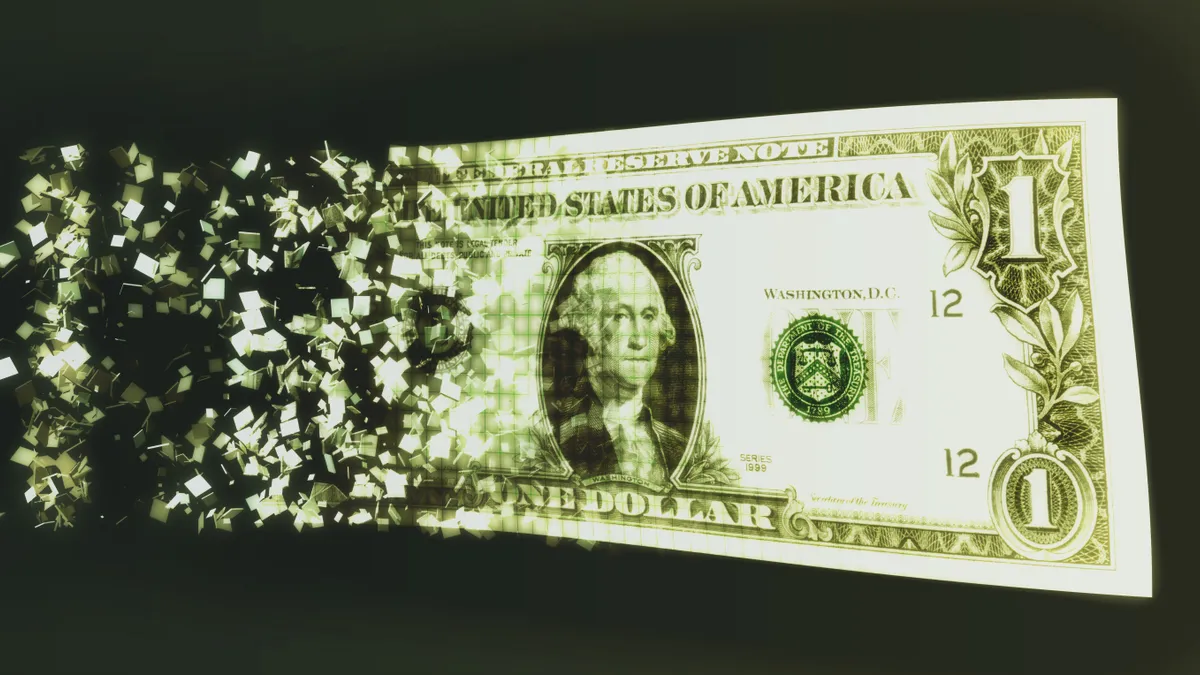Dive Brief:
- Rep. Stephen Lynch, the top Democrat on the House Financial Services’ Subcommittee on Digital Assets, last week reintroduced legislation that calls for a Treasury Department pilot program to create a digital dollar, which would be an electronic version of the currency.
- The proposed Electronic Currency and Secure Hardware (ECASH) Act, H.R. 5410, would seek to preserve anonymity for cash transactions while attempting to retain the dollar as a form of currency for the underbanked and unbanked, according to a Sept. 14 press release from Lynch regarding the bill.
- This legislation, introduced in the House on Sept. 12, “would promote greater financial inclusion, maximize consumer protection and data privacy, and advance U.S. efforts to develop and regulate digital assets,” the press release said.
Dive Insight:
In March 2022, Lynch (D-MA) proposed similar legislation in the prior Congress, but it failed to gain traction in the Republican-controlled chamber and didn’t pass the House. To some degree, the legislation is an attempt to find an alternative to the physical dollar, which has declined in use as electronic payment options have increased.
This year’s legislation, once again referred to as the ECASH Act bill, is cosponsored by some of the same Democrats as was the case previously, including Reps. Jesús G. “Chuy” García (D-IL), Rashida Tlaib (D-MI) and Ayanna Pressley (D-MA). It was referred to the House Financial Services committee for review.
The bill was one of several pieces of legislation that came up at a Sept. 14 hearing of the committee’s Subcommittee on Digital Assets, Financial Technology and Inclusion regarding digital currencies. That subcommittee hearing, titled “Digital Dollar Dilemma: The Implications of a Central Bank Digital Currency and Private Sector Alternatives,” drew testimony from representatives of the Bank Policy Institute, the Cato Institute and Columbia Law School, among others.
The digital dollar proposed by Lynch’s legislation would not be the same as a central bank digital currency, or CBDC, which has been considered by the Federal Reserve. The digital collar could, however, “complement” a CBDC, according to a spokesperson for Lynch’s office.
The digital dollar would not operate on a distributed ledger or blockchain technology, which is the technology that underpins other CBDCs that have been created in some countries.
E-cash, as the currency is called by Lynch, would seek to preserve the anonymity and privacy of transactions that occur using the physical dollar, the release said. It would also be subject to the same federal laws, such as anti-money laundering regulations.
“In the interest of expanding financial inclusion, e-cash must also be interoperable with existing financial institution and payment provider systems, capable of executing peer-to-peer offline transactions, and distributed directly to the public via secured hardware devices,” the release said.
At this point, no companion bill has been introduced in the Senate. There wasn’t a companion bill introduced in the prior Congress either.











